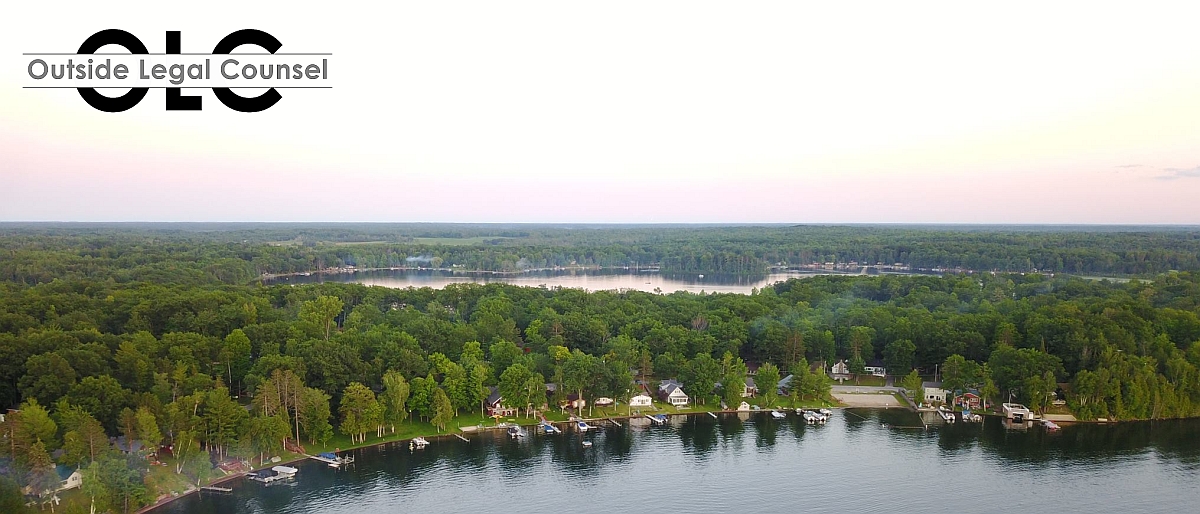The case of HORSEHOE LAKE CORP v CARLSON (COA No. 304695) involves a dedicated park on Horseshoe Lake as part of the Leocadia Park subdivision.
Leocadia Park, a private park, is south of Horseshoe Lake. Immediately south of Leocadia Park is Lake Shore Drive, a private road dedicated in the plat that substantively spans the southern length of Leocadia Park.
Lot 211 (denoted in red above) does not border Horseshoe Lake, being separated by Leocadia Park. The owners of Lot 211 refused to remove their installed dock and a lawsuit ensued on a trespass theory. In response, defendants filed a counter-complaint seeking a declaration that they have riparian rights to Horseshoe Lake.
The issue on appeal: whether Lot 211 had riparian rights. The Court of Appeals held that no riparian rights existed.
The panel concluded that Lot 211 is separated from Horseshoe Lake by Leocadia Park. Thus, the lands of Leocadia Park are riparian and not Lot 211.
Further, because Leocadia Park was dedicated prior to 1968, defendants are not the fee owners of the park under the Land Division Act, and as a result, do not have riparian rights by virtue of the dedication either.

